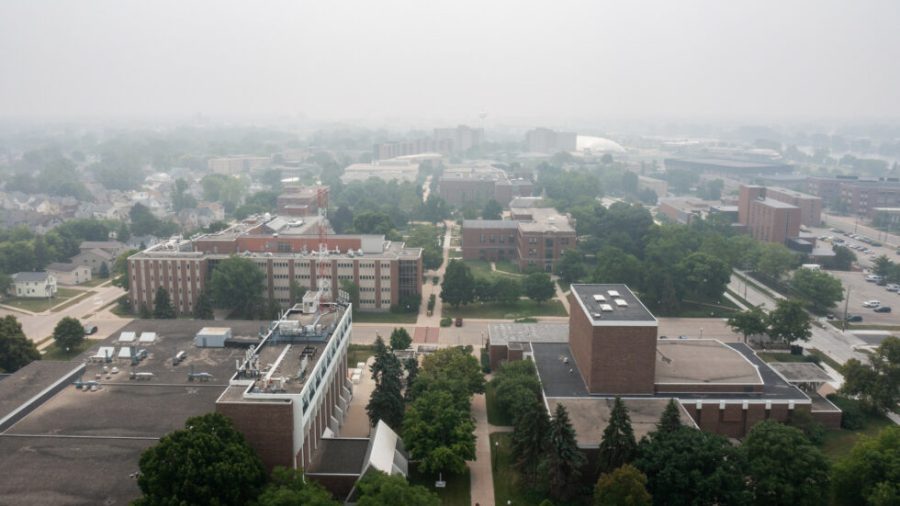UWO environmental expert says Canadian wildfires, low pressure system lead to poor Wisconsin air quality
Courtesy of UWO — A drone photo taken June 28 of UWO’s Oshkosh campus highlights the impact of poor air quality in the area.
June 29, 2023
Poor air quality—an issue Wisconsinites don’t usually have to worry about—is making headlines across the country this week.
“The Midwest is getting hit by this poor air quality due to a low pressure system in Canada that is forcing air southward and carrying pollutants with it,” said Greg Kleinheinz, director of the University of Wisconsin Oshkosh’s Environmental Research and Innovation Center.
“Wisconsin generally has very good air quality. However, there are occasional ground level ozone alerts in southeastern Wisconsin or along the Lake Michigan shoreline. Much of this is due to both local impacts of population as well as movement of air from industrial centers in Wisconsin and beyond, but due to meteorology and geography it settles along the Lake Michigan shoreline.”
The difference today, however, is the high particulate matter (PM 2.5) from the Canadian wildfires.
“These are very small, less than 2.5 microns in size, and are capable of moving to lower depth of a person’s respiratory system and causing more severe adverse heath effects,” Kleinheinz explained.

“This situation shows how climate change and increasing temps and drier conditions can impact people in direct ways, such as fires, and in indirect ways, such as poor air thousands of miles away.”
Kleinheinz recommends that people who are susceptible to air pollution due to a medical condition like asthma or chronic obstructive pulmonary disease stay inside and consider wearing an N95 mask when outside.
When conditions are poor, people should reconsider heavy outdoor physical activity. While inside, using high energy particulate air (HEPA) filters can help.
Relief from the poor air quality depends on the weather both in Wisconsin and in Canada.
“Hopefully, some rain in Canada and movement of the low-pressure system will provide relief in the next few days,” he said.
Kleinheinz also serves as chair of UWO’s engineering technology department.














